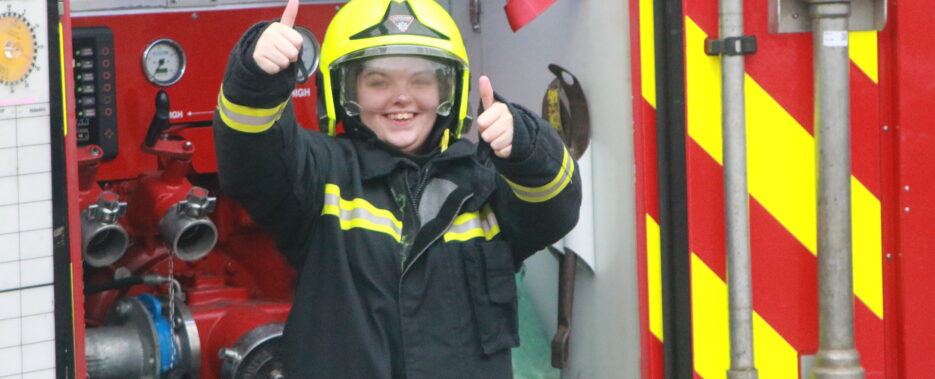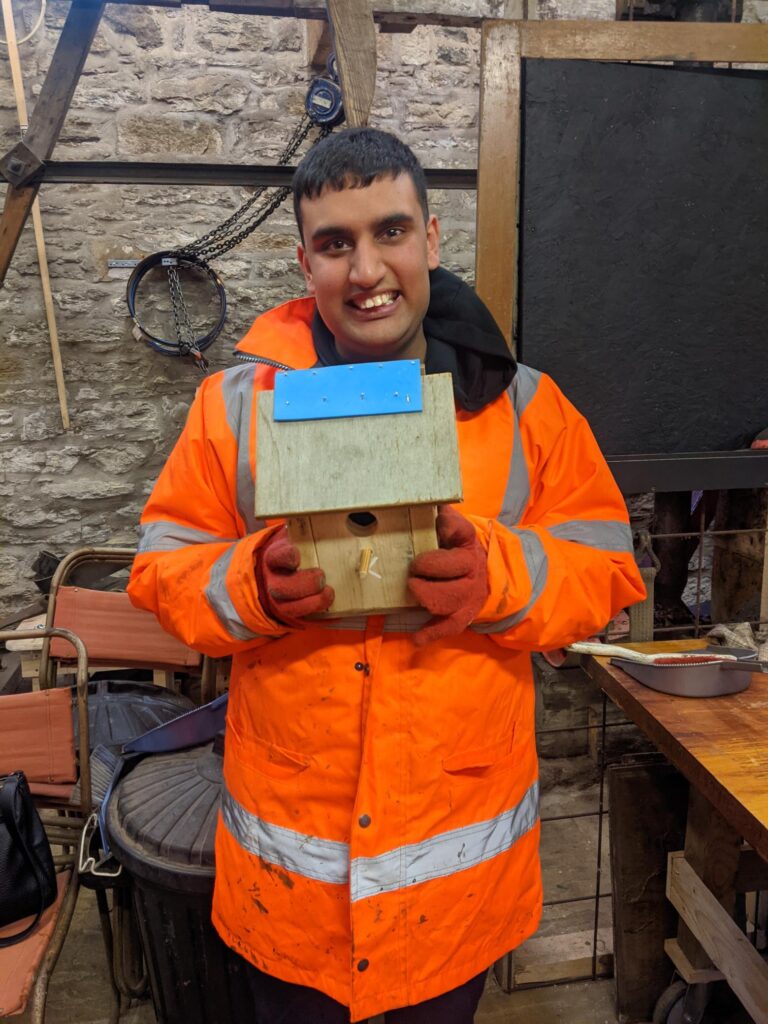Careers
Our Vision
Every student at ESPA College is able to develop their vocational and employability skills, make informed choices about their future and feel prepared to engage with and explore different pathways.
Careers and employability at ESPA College
It is very important for young people to have excellent careers guidance and develop valuable employability skills. This allows them to transition into education, training or employment opportunities with more confidence.
At ESPA College, our aim is for all students to fulfil their potential and to make the right choices for their future. With our support and guidance, students can make decisions about the different options that will help them achieve their goals. With our careers programme, students are able to access a range of experiences and resources which will introduce them to the world of work. We use an individualised approach and tailor students’ experiences to suit their personal goals and support requirements.
Aims of the careers programme
- To support young people to enhance their long-term employability
- To help students develop skills which better prepare them for working life
- To give students the opportunity to make well informed choices about their future
- To provide impartial careers information, advice and guidance to students
- To provide a variety of useful vocational experiences for students
Careers information, advice and guidance for students
The Employability Coordinator regularly meets with students to discuss their employment / education goals and to help them plan their future pathway. Where appropriate, students will have access to a level 6 qualified Careers Adviser for guidance interviews.
The Gatsby Benchmarks
Our careers strategy is built around The Gatsby Benchmarks, which are a framework of 8 guidelines that define the best careers provision in schools and colleges.
Benchmark 1. A stable careers programme
Every college should have an embedded programme of career education and guidance that is known and understood by learners, parents, teachers, employers and other agencies.
Benchmark 2. Learning from career and labour market information
Every learner, and their parents (where appropriate), should have access to good quality information about future study options and labour market opportunities. They will need the support of an informed adviser to make best use of available information.
Benchmark 3. Addressing the needs of each student
Learners have different career guidance needs at different stages. Opportunities for advice and support need to be tailored to the needs of each learner. A college’s careers programme should embed equality and diversity considerations throughout.
Benchmark 4. Linking curriculum learning to careers
All subject staff should link curriculum learning with careers, even on courses that are not specifically occupation-led. For example, STEM subject staff should highlight the relevance of STEM subjects for a wide range of future career paths. Study programmes should also reflect the importance of maths and English as a key expectation from employers.
Benchmark 5. Encounters with employers and employees
Every learner should have multiple opportunities to learn from employers about work, employment and the skills that are valued in the workplace. This can be through a range of enrichment activities including visiting speakers, mentoring and enterprise schemes, and should include learners’ own part time employment where it exists.
Benchmark 6. Experiences of workplaces
Every learner should have first-hand experiences of the workplace through work visits, work shadowing and/or work experience to help their exploration of career opportunities, and expand their networks.
Benchmark 7. Encounters with further and higher education
All learners should understand the full range of learning opportunities that are available to them. This includes both academic and vocational routes and learning in schools, colleges, universities and in the workplace.
Benchmark 8. Personal guidance
Every learner should have opportunities for guidance interviews with a career adviser, who could be internal (a member of college staff) or external, provided they are trained to an appropriate level*. These should be available for all learners whenever significant study or career choices are being made. They should be expected for all learners but should be timed to meet individual needs.
Link to compass results – COMPASS RESULTS
Measuring the impact of the careers programme
The careers programme at ESPA College is embedded within the curriculum, in addition to being delivered through a range of vocational activities and experiences. We use different strategies to evaluate the delivery of the programme, which inform our decisions regarding future development.
Activities we use to measure the impact of the careers programme include:
- Analysing destination data
- Questionnaires for students, staff, employers, parents/carers
- Compass evaluation
- Work experience and lesson observations
- Quality audits for vocational profiles, transition profiles and CEIAG
- Termly employability review meetings
- Curriculum review meetings
Pathways and transition
ESPA College is committed to creating transition options that give learners the best chance of succeeding in their future endeavours. At the end of their programme of study, some transition options include:
- Further study at a college, university or training provider
- Employment and volunteering
- Supported internship
- A Traineeship
- An apprenticeship
Useful Links
Colleges
Newcastle College – https://www.ncl-coll.ac.uk
Sunderland College – https://www.sunderlandcollege.ac.uk/
Middlesbrough College – https://www.mbro.ac.uk/
Gateshead College – https://www.gateshead.ac.uk
South Tyneside College – https://www.stc.ac.uk
Useful resources for students and parents/carers
Project Choice –
Shaw Trust – https://www.shawtrust.org.uk
National Career Service – https://nationalcareers.service.gov.uk
Jobcentre – https://www.gov.uk/contact-jobcentre-plus
Access to work – https://www.gov.uk/access-to-work
Find an apprenticeship – https://www.gov.uk/apply-apprenticeship
The National Autistic Society – https://www.autism.org.uk
BASE – https://www.base-uk.org
Connexions –
https://wellbeinginfo.org/services/connexions-sunderland
LMI for all – https://www.lmiforall.org.uk/




![College Prospectus front cover [CNS]](https://espa.org.uk/wp-content/uploads/2022/07/2022-Prospectus-730x1024.jpg)
![Ofsted Good Provider [CNS]](https://espa.org.uk/wp-content/uploads/2024/02/Ofsted_Good_GP_Colour-300x300.png)